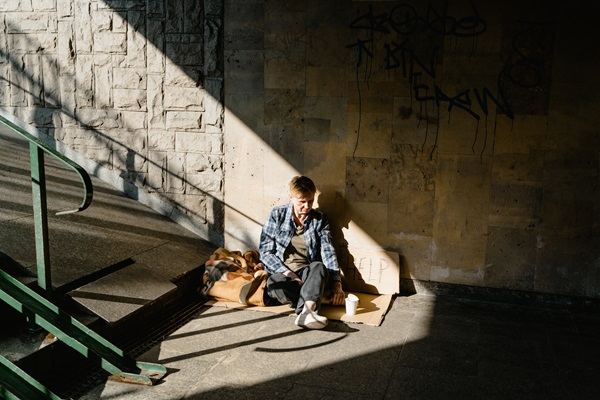
Déi Jonk Gréng (Young Greens), Jonk Sozialisten (Young Socialists) and Déi Jonk Lénk (Young Left) have announced that they will organise a protest against the begging ban on Monday 29 January 2024 at 13:30 in Place Guillaume II in Luxembourg-Ville.
Luxembourg’s Minister for Home Affairs, Léon Gloden, approved the ban on begging in Luxembourg City, passed by the College of Aldermen in the capital, in December 2023. The ban aimed to target “aggressive and organised begging”, but according to the youth groups of certain opposition parties organising the protest, simple begging has ended up being targeted as well. The police checks are unable to differentiate between simple begging and organised forms of begging, they stressed.
“The young greens, young leftists and young socialists have come together to, in a wider collective, together with organisations from the civil society, continue to draw attention to the fact that we do not want to fight against poverty by fighting against the poor themselves. There must be social solutions for social problems from the government and the City of Luxembourg,” Mara Stieber, a representative of Déi Jonk Lénk said, speaking to Chronicle.lu.
Several opposition parties, namely the Luxembourg Socialist Workers’ Party (LSAP), the Greens (Déi Gréng), the Left (Déi Lénk) and the Pirate Party (Piraten), have been vocally critical of the ban, which had been previously rejected by Minister Gloden’s predecessor.
The Luxembourg association Solidaritéit mat den Heescherten (solidarity with beggars) has also criticised the ban. During a recent press conference on the subject, the association noted that begging is the result of social inequalities or life accidents, and the banishment of the poor from the city centre by repressive measures goes against the defence of social justice in a democratic society. The association offers moral, legal and other support for beggars. It intends to reassure people in a situation of begging that they are not alone and to offer them legal assistance, should criminal proceedings be initiated against them. The group stressed that “it is the duty of the State and the City to pursue an adequate social policy and to combat poverty instead of stigmatising and alienating the poor”.
The repressive phase of the begging ban has been in force since Monday 15 January 2024. As Solidaritéit mat den Heescherten noted, however, in a judgment of 19 January 2021, the European Court of Human Rights ruled that begging is merely “the act of turning to others to obtain help” and, therefore, falls under the right to privacy. The Strasbourg Court also criticised the disproportionate prison sentence applied in this case against the beggar. In the event of non-payment of the fine imposed, this prison sentence also exists in Luxembourg.








